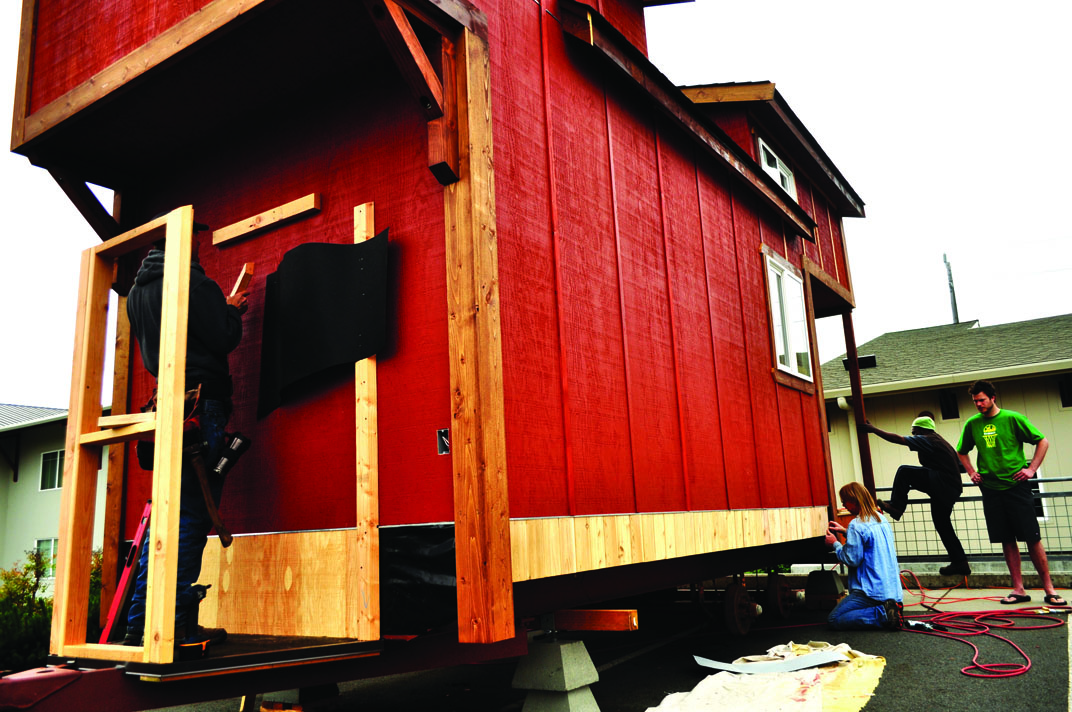PORT ANGELES — Student carpenters in the green building program at Peninsula College are working on their first mini-home.
The students, who began work in February on the structure at the Lincoln Center in Port Angeles, are finishing its exterior this month and expect to complete the interior in the fall.
They hope to sell the mini-home when it is completed and use the profits to fund similar projects next year — and already have about eight people who are interested in purchasing it, they said.
The mini-home is 256 square feet and has a 48-square-foot deck.
“It’s big for a mini-home,” said student Erik Fullingim.
Tumbleweed Tiny House Co. sells plans for mini-homes as small as 65 square feet.
Kitchen, bathroom, two lofts
The Peninsula College version features a kitchen, bathroom, living area and two sleeping lofts. To keep costs low, students installed a used toilet.
The green building program teaches both green construction and basic carpentry, encouraging energy-conscious construction.
This means they are caulking all the seams, which is something most contractors wouldn’t do, Fullingim said.
This allows the building to be airtight and prevents energy waste.
The carpenters are using green materials where possible, Fullingim said. For example, they use Earth-friendly stains, finishes and caulk.
They also are using advanced framing techniques that, they say, use less lumber but provide the same strength as other methods.
They also avoided using chemicals that can be harmful to people who are sensitive to chemicals, making the mini-home hypo-allergenic, said Mitch Breece, who helps instructor Patrick Nickerson.
This is a realistic housing option for those who are sensitive to chemicals, Breece said.
Some $5,500 has been invested into the mini-home so far, Nickerson said.
A mini-home typically costs between $30,000 and $50,000.
The costs were kept low by the free labor of the students and the donations they received, said Nickerson.
He described mini-homes as an affordable-housing option, saying they are a great alternative to housing projects.
The concept of the mini-home may seem radical or unusual, but it is one of the hottest new trends in housing, Breece said.
Nickerson said there recently has been a mini-home movement in the United States and Canada.
One promoter and builder of mini-homes is in Port Townsend.
GreenPod Development, owned by Ann Raab, had a home featured at the Seattle Green Home Tour on Earth Day weekend, April 21-22.
________
Jesse Major, a recent graduate of Peninsula College and Port Angeles High School, is an intern with the Peninsula Daily News. To reach him, phone 360-452-2345, ext. 5056.

